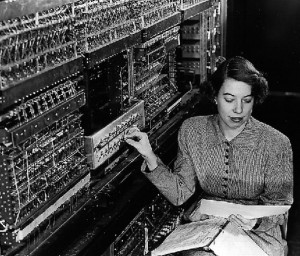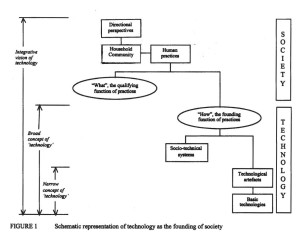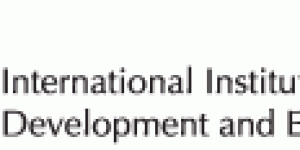IIDE Proceedings 2014 ~ Introduction: Social Change In Our Technology-Based World
No comments yet1. Introduction
This book contains the research papers presented and thoroughly discussed at the 19th Annual Working Conference of the IIDE held in May 2014. These conferences are a collaborative effort of senior researchers and PhD students from different universities in different countries with a shared interest in normative aspects of the ongoing development and social change of our technology-based world. An integrative framework has emerged in previous research collaboration that enables us to map the contributions from the various disciplines – such as philosophy, engineering, information systems, management science, systems thinking, and development studies – in a coherent vision. Therefore it is useful to introduce first this integrative framework before we present an overview of the papers.
2. Integrative framework
With slight exaggeration, one can say that change is the only constant factor in today’s society where everything is in flux – continuing change seems to be a basic condition for living in modern times. This extreme dynamics and even fluidity of society (Bauman 2000) is directly related to the complex of Science, Technology and Economy since the Industrial revolution of the 19th century in Europe. In the past decades the study of this complex has become a vast field of interdisciplinary research with many ramifications and approaches (see e.g., the Encyclopedia of Science, Technology and Ethics)
To understand social change in a technology-based society requires first of all a conceptualization of the main terms “technology” and “society”. One should realize however that in fact both terms are container concepts or collective names and do not refer to a specific object. Furthermore one has to be aware that by distinguishing between such a thing as “technology” on the one hand and “society” on the other, one might already start from a false view on technology, namely as something that is separate from society. Aiming for an integrative vision of technology and society one should take into account that technology is about people and thus part of society and not like a meteorite that impinges from outside on our human lives and society. “We know that technology does not determine society: it is society. Society shapes technology according to the needs, values, and interests of people who use the technology.” (Castells and Cardoso 2005: 3)
Figure 1 provides a schematic representation of an integrative vision, in which the lower part of the diagram represents “technology” and the upper part “society”. In our everyday language technology usually refers to material artefacts such as a cell phone, car, laptop, etc. Usually we are not aware that each of these artefacts is for its functioning dependent of a comprehensive system: e.g. for the use of a car we need a system of roads, petrol stations, legal regulations, and numerous other amenities. Characteristic of modern science-based technology is that a fundamental transition has taken place in the relation between technology and society, namely from technology that consists of separate artefacts in the hands of individuals to technology as a total environment in which we live. This new relationship between technology and society concerns the “how” or foundation of the various human and social practices in which our daily life unfolds. These practices have become dependent for their realization on organized “socio-technical systems”, such as transport from the mobility system, medical support from the health care system, schooling and training from the educational system. The transition from a traditional to a modern society thus goes along with a fundamental and irreversible change of our living environment. Technology has become a new habitat for people, a technotope.
This fundamental transition to a modern technological world has also profound implications for the economic sphere of society and for politics. Referring to Figure 1 one could say that the socio-technical systems that provide the foundation for societal life in its variety of practices also include the economic and political dimension. By way of example let me mention here the health care system. Since about the nineteen eighties the economy of health care has become a recurring matter of public debate. The point I want to make here is that traditionally the ethical relationship of medical practice between physician and patient has been dyadic. This situation has changed profoundly since this relationship is intertwined within a broader nexus in which several other parties are involved. This means amongst other things for the physician that his obligations to each patient have to be balanced in a network of competing obligations and conflicting interests (see e.g. Haavi Morreim 1991).
Let us now turn our attention to “society” at large, the upper part of the diagram. Through the centuries, the household has been the fundamental building stone of human society – in the household and the family the exchange between the generations and the care for each other takes place. The fabric of society around the household has fundamentally changed since the rise of the industrial revolution. While the household as the fundamental unit of society persists, a broad range of human practices has differentiated itself gradually from the household, a process that began with the organization of labour and the technical production in the factory. The challenge for social change in a modernizing society can now be understood as the dual task to preserve the household as the ethical core of society and at the same time to open up the household and the potential of the various human practices for the benefit of society. This means that shaping of the “how”, the technical-organizational founding of society, should enable concretisation of the specific “what” of each domain of human life along with the sustenance of healthy households in society.
It is hard to ignore that people’s behaviour pattern varies between different regions and with distinct cultural backgrounds. The role of culture and religion is therefore a hotly debated issue, in particular related to economic development of a society. In recent years the debate has been triggered by the study Culture matters: How values shape human progress (2000) edited by Harrison and Huntington and some later publications. In the scheme of Figure 1 the role of culture and religion for the development of our technology-based societies is accounted by “directional perspectives”. Traditionally the household and the local community play a key role in the transfer of basic cultural values and a directional perspective on human life and world from one generation to the next. In a differentiated society the human practices have to play a complementary role in the transfer of specific values, or echoing MacIntyre (1981: 178), in developing and maintaining the so-called ‘internal goods’ of these practices.
3. Overview
The research papers in the following chapters of these Proceedings cover a variety of issues that can be mapped in the here discussed relationship between “society” and “technology”. It makes sense to introduce each paper briefly by looking at them through the lens of Figure 1. The first five can be assigned to the upper part of this figure, while the following six primarily have to do with the bottom part.
The papers of two South African colleagues from NorthWest University, Michael Heyns and Mark Rathbone, focus on two important human practices and institutions of modern society, namely the university and the commercial enterprise. Rathbone contributes to the issue of corporate social responsibility (CSR) of the business venture, while Heyns gives in his paper a critique on ‘academic capitalism in the new economy’, a valuable input to a topical debate about the entrepreneurial university. One can say that both papers struggle with the “what”, the qualifying function of the respective practices of business and academic life. It is interesting to note that the topic of these articles share a general concern of today about the relation between “economy” and “society”, however the public debate about business life and the academy seems to point in opposite directions. While CSR stresses the social dimension of the business enterprise, ‘academic capitalism’ pulls the university as a societal actor more into the economic sphere. These opposite tendencies can be understood as a symptom that our societies are struggling with the compass for its future.
The papers of Attie van Niekerk and Lindile Ndabeni have to do with the complex interactions between the modern technology-based world and more traditional part of society in South Africa. Referring to Figure 1 one could position their research in the upper part, in particular the linkages between the two blocks at the left side, “household, community” and “human practices”. The work of Attie van Niekerk and the Nova Institute is a search for practical answers for the sustainability of endangered communities in South African townships. The paper published here is the result of contract research executed in some South African townships. The purpose of this research is to determine the overall quality of life of households in order to establish a base line for future interventions and social change that aim to improve the situation in these communities. Lindile Ndabeni from Tswhane University of Technology discusses in his paper the role of the informal sector in South African society and focuses on an evaluation of some critical factors for an inclusive economic development.
The area of systems thinking, management science, and information systems has been a focus at previous AWC’s. The papers by Darek Haftor and his graduate students, Natallia Pashkevich and Erdelina Kurti, provide a fresh input in these Proceedings.
Natallia Pashkevich and Darek Haftor analyze the current debate about the effects of digitization on society, especially the future of labor in economic production. They discuss how the introduction and use of contemporary Information and Communication Technologies (ICT), may give rise to automation of a large variety of work-tasks, and as a consequence induce unemployment. As new kinds of jobs are created simultaneously when old jobs disappear, the key question is whether there will be a net positive of new jobs created or not. After exposing us to the various theoretical considerations of this question, the authors move on with the discussion to a higher level of consideration and ask whether we should aspire for providing everyone with a job at all, or if we should reset our perspective to regard ICT as a tool of liberation of humans from their jobs and thus enabling for societies where humans do not need to work for a living.
Darek Haftor and Erdelina Kurti present an investigation into some central aspects of the nature, or ontology, of the social, particularly with regard to social relations. They argue that the frequently assumed conception of the social, such as companies, families and even countries, is often based upon a view of the social as a ‘system’, where the model of a system is derived from the biological world. To remedy the limitations of this systemic conception, the authors experiment with two alternative conceptualizations of the social. Firstly is the notion of ‘assemblage relations’ and then comes the notion of ‘encaptic relations’. While the latter two clearly overcome some of the limitations of the systemic conception, and thereby do more justice to our empirical experiences of the social, they still need further conceptual elaboration.
The two successive papers contain results of the latest research of senior researchers from Sweden and North America.
Fabian von Scheéle and Darek Haftor focus in their paper Cognitive time distortion as a source of risk in economic organization upon human experiences of temporality, or time, and their relations to economic risks in organizations. They firstly establish a clear distinction between psychological time and physical time, which gives rise to their notion of cognitive time distortion. This distortion is then related to the conventional economic calculus of revenues, costs and profits of an economic organization. In the latter, two kinds of risks are identified as sources of economic inefficiencies. By addressing these risks the manager may now reduce these inefficiencies and thereby increase output quality, employee wellbeing, and economic performance.
Anita Mirijamdotter and Mary Sommerville present in their paper an interesting application of Informed Systems Methodology (ISM) to North American academic libraries. With an explicit emphasis on using information to learn, ‘soft’ systems design tools aid co-creation of communication systems and professional practices that enable information sharing and knowledge creation processes. When contextualized by local values, experiences, and purposes, the ISM fosters organizational transformation and creative innovation
The final three papers make an explicit connection with Dooyeweerdian philosophy that often has served at the AWCs as a common ground in the interdisciplinary excursions and the thinking through of normative questions concerning technology and society.
Andrew Basden argues that affordance is attracting considerable interest but poses significant philosophical challenges that have to be addressed. The paper discusses how Dooyeweerd’s philosophy can very readily address these challenges. According to Basden affordance can be related to Dooyeweerd’s ‘oceanic’ idea of meaningfulness. This provides a workable definition of affordance as the relationship between two ways of being meaningful (two aspects). Besides general theoretical considerations about the notion of affordance, Basden’s paper also discusses some practical applications.
Maarten Verkerk’s paper is an interesting attempt to bridge the gap between philosophical concepts and the thinking of engineers. It is the outcome of intensive dialogues between a Dooyeweerdian philosopher and engineers about concrete design problems. It seems that a necessary condition for success is that both parties are really interested in each other and are willing to take a step into “the other world”. Referring to Figure 1 one could say that concepts from the upper level of Figure 1 trickle down into the world of engineers. In this process these concepts are repacked into the language of engineers. Similar to Triple P in management (People, Profit, Planet), the Triple-I model is launched: the ‘I’ of ‘intrinsic’ refers to the inherent normativity of the user practice, the ‘I’ of ‘inclusive’ to the presence of justified interests of different stakeholders, and the ‘I’ of ‘idealistic’ to the values or dreams that play a role.
Darek Haftor provides a critical assessment of the Triple-I model as proposed by Verkerk. He argues that while that effort is much needed and welcome, it manifests some fundamental flaws that need remedy. He suggests avenues for further development of the Triple-I model by drawing on several decades of experience from systems thinking. In all this, Haftor identifies one feature of the model as particularly important and promising, namely its attempt to operationalise Dooyeweerd’s theory of individuality structures and the concept of qualifying function. The latter concept is of help to think through important issues of normativity in the design process of complex systems.
NOTE
Sytse Strijbos is founder of the IIDE and chairperson of the IIDE in Europe, strijboss@iide-online.org
REFERENCES
Bauman, Zygmunt. (2000). Liquid modernity. Cambridge: Polity Press.
Castells, Manuel and Cardoso, Gustavo, eds. (2005). The Network Society: From Knowledge to Policy. Washington, DC: Johns Hopkins Center for Transatlantic Relations.
Haavi Morreim, E. Balancing Act: The New Medical Ethics of Medicine’s New Economics. (1991). Dordrecht: Kluwer.
Harrison, Lawrence E and Huntington, Samuel P, eds. (2000). Culture Matters: How Values Shape Human Progress. New York: Basic Books.
MacIntyre, Alasdair. (1981). After Virtue: A Study in Moral Theory. London: Duckworth.
Mitcham, Carl, ed. Encyclopedia of Science, Technology and Ethics, (2005). Vol. 1-4. Farmington Hills: Thomson Gale.
Strijbos, Sytse and Basden, Andrew, eds. (2006). In Search of an Integrative Vision for Technology: Interdisciplinary Studies in Information Systems. New York: Springer.
Van der Stoep, Jan and Strijbos, Sytse, eds. (2011). From Technology Transfer to Intercultural Development. Bloemfontein: SunMedia, Amsterdam: Rozenberg Publishers.
You May Also Like
Comments
Leave a Reply











